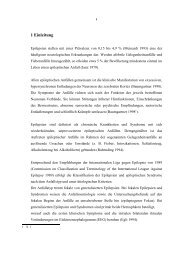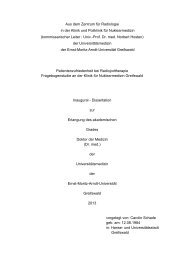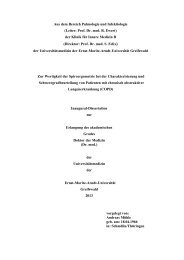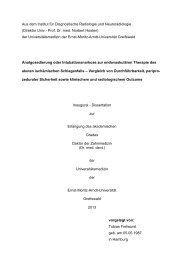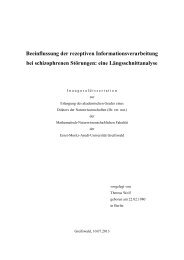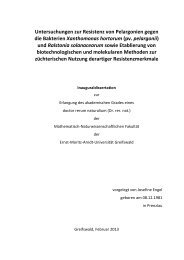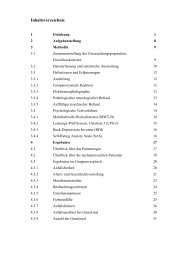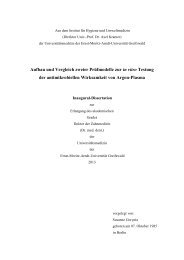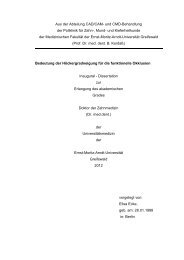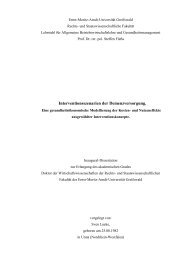Urban Green Areas – their functions under a changing lifestyle of ...
Urban Green Areas – their functions under a changing lifestyle of ...
Urban Green Areas – their functions under a changing lifestyle of ...
You also want an ePaper? Increase the reach of your titles
YUMPU automatically turns print PDFs into web optimized ePapers that Google loves.
certain social community, they now have more chances to promote <strong>their</strong> own capacities<br />
(LUAN 2009: 93 ff.).<br />
A socialist market economy follows the rules <strong>of</strong> a market economy and is intended to<br />
reinforce the objective <strong>of</strong> the socialist state to achieve a ‘strong country with wealthy<br />
people, social justice, democracy and civilization’. The development <strong>of</strong> a market economy<br />
brings opportunities for the people to develop <strong>their</strong> abilities and exploit natural sources to<br />
spur the country's development. It provides a context within which people may develop<br />
new ways <strong>of</strong> economic thinking in which benefits must be considered as the top priority.<br />
Competition in economics encourages people to consolidate all <strong>their</strong> potential to find the<br />
best solutions for economic problems. At the same time it provides opportunities and<br />
challenges which force people to maximize <strong>their</strong> efforts and mobilises resources in a way<br />
which which a planned economy does not favour. The rapid transformation <strong>of</strong> the markets<br />
brings with it increasing material and spiritual needs <strong>of</strong> people in all fields <strong>of</strong> <strong>their</strong> life.<br />
As a consequence, DAN (2011) states that in newly established market economies, the<br />
trend <strong>of</strong> development is to sacrifice everything <strong>–</strong> including cultural values <strong>–</strong> to the<br />
production <strong>of</strong> goods. Places <strong>of</strong> natural beauty became places for making cultural business. .<br />
For example, the parks lost <strong>their</strong> functionality as free public place where people show and<br />
enjoy the culture as well as relaxation. Since then, the parks have enclosed fences to collect<br />
entrance fee. That makes the meaning <strong>of</strong> the word 'public' in the term 'public park' no<br />
longer hold its true meaning.<br />
In a market economy workers are paid the going rate and egalitarianism is no longer<br />
accepted as in a centrally planned economy. Thus there are negative consequences to the<br />
introduction <strong>of</strong> a market economy. Amongst those negative consequences are (KINH<br />
2012: 76):<br />
deepening social gap between rich and poor;<br />
broadening the distinction between rural and urban areas,<br />
. increasing difference among pr<strong>of</strong>essions;<br />
raising many contradictions in society.<br />
Under the impact <strong>of</strong> the market economy, the degradation <strong>of</strong> morality and behaviour is<br />
obviously happening. Market mechanism supports a belief, that the acquisition <strong>of</strong><br />
possessions and money are the most important goals in life features. This powerful trend<br />
dominates the behaviour <strong>of</strong> many people and as a consequence moral values in Vietnamese<br />
society are <strong>under</strong> pressure.<br />
3.1.2 The impact <strong>of</strong> policies and institutions<br />
Traditional Vietnamese attitudes <strong>of</strong> people towards others in the community are that "the<br />
community cares for every member" in each village and that the "state cares for all issues<br />
<strong>of</strong> its all citizens” (HA 2011: 22). These long held attitudes have throughout history had an<br />
53



